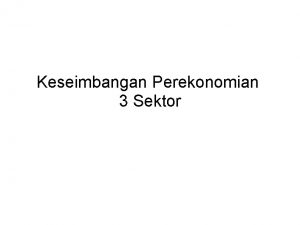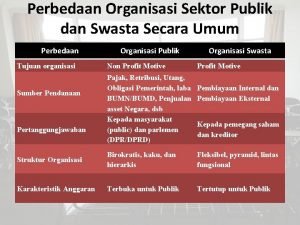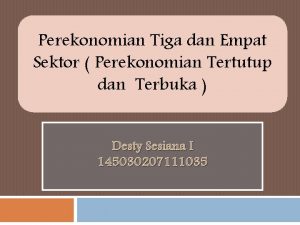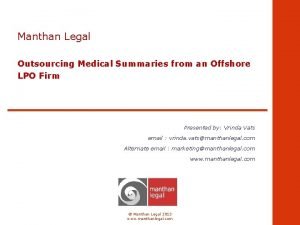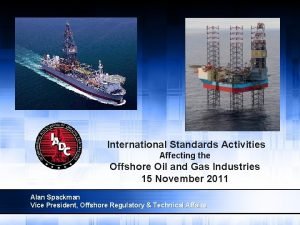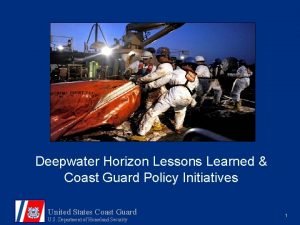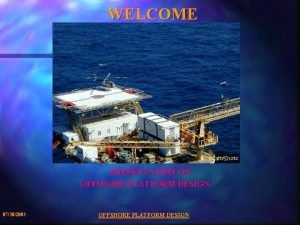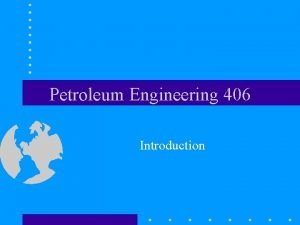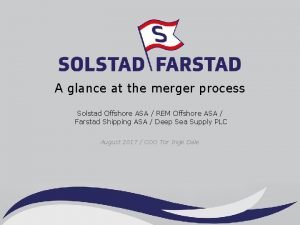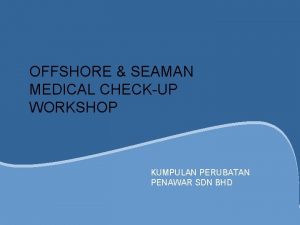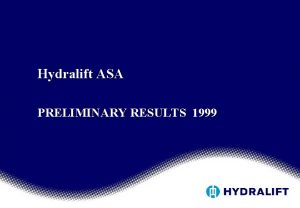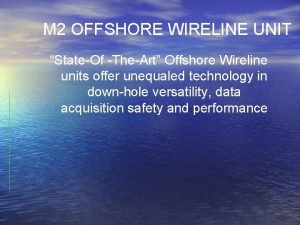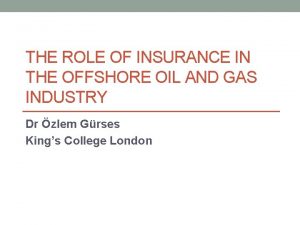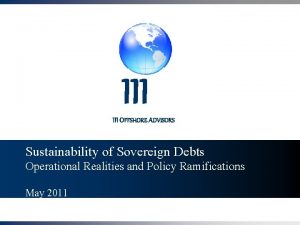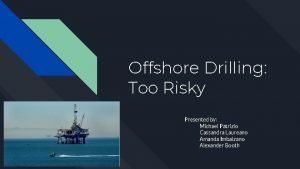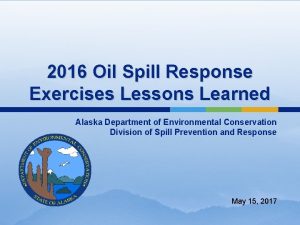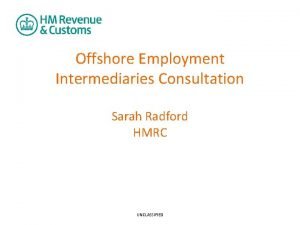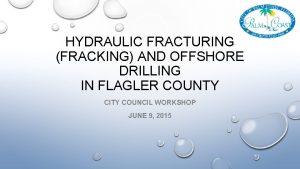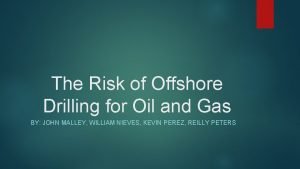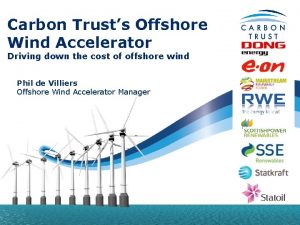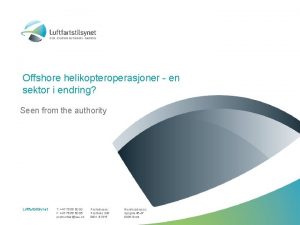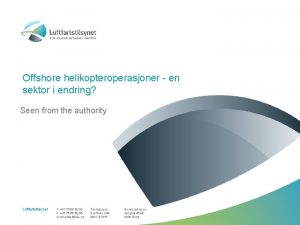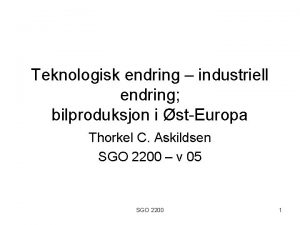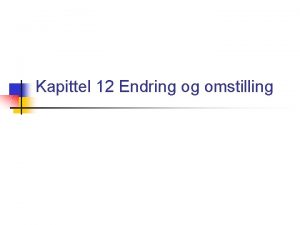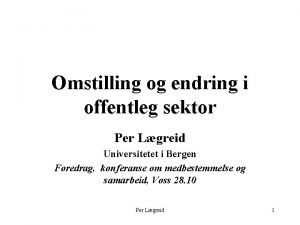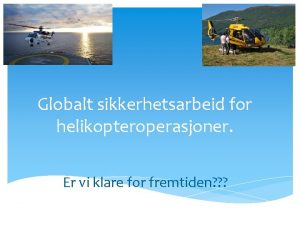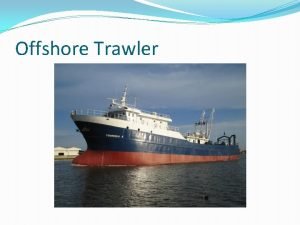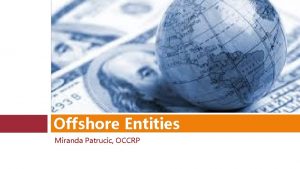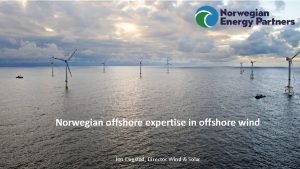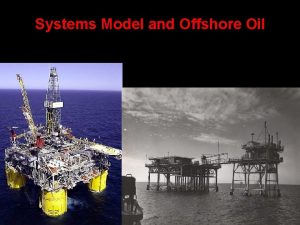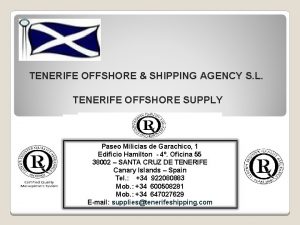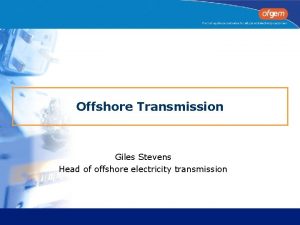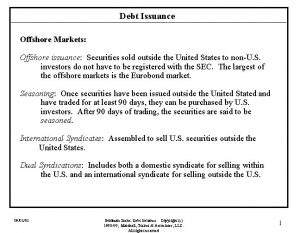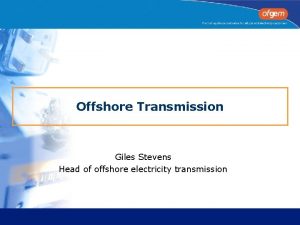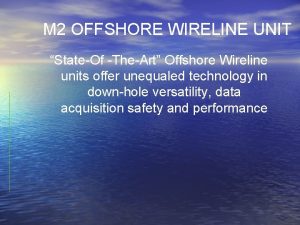Offshore helikopteroperasjoner en sektor i endring Seen from






























- Slides: 30

Offshore helikopteroperasjoner - en sektor i endring? Seen from the authority Luftfartstilsynet T: +47 75 58 50 00 F: +47 75 58 50 05 postmottak@caa. no Postadresse: Postboks 243 8001 BODØ Besøksadresse: Sjøgata 45 -47 8006 Bodø

Content • • The current situation Regulatory changes New areas of operation Changes in activity • The Committee for Helicopter Safety on the Norwegian Continental shelf (SF)




HEMS • Thorough shake up and improvements following the 1997 safety study • No fatal accidents since 1996 • Safetc study 2013 • Then suddenly on the January 2014 14.

HSS-1 FAR (1990) « 10 times more dangerous» than fixed wing scheduled airline services

HSS-2 Fatalities per million passenger hours (1999) Accidents NCS: • 14 Accidents • 8 On passenger flights • 54 Fatalities • 41 Passengers • 13 Crewmembers • 10 Serious injuries • 5 Controlled ditchings/ survivable crashes

HSS-3 On risk levels

CAA-N comment to CRD 2013 -10 • There can be little doubt that HOFO, as clearly stated in the NPA (e. g. Table 7), must be considered high risk operations. • The difficult operating conditions in the areas of operation, previous accidents and incidents, and the interest of the passengers being transported and not least the additional safety measures implemented by states, operators and customers, support this view.

Components of safe operations • Safety margin • Acceptable risk ”Safe” Safety margin ”Less safe/ Unsafe” Crew Operator Customer Regulations: -Aircraft design -Maintenance -Sertification -Operation ATM

EASA regulations • • Airworthiness - since 2003 Air Crew – May 2014 Operations - October 2014 Rules of the air - November-2014 Aerodromes. . . , Air traffic management …, …

Rulemaking programme / task EASA Rulemaking process Terms of reference/ working groups • Anyone can propose a RMT • Anyone can comment on an NPA, and then the CRD • 5 -10 years NPA CRD EASA Opinion to EC EASA Decision Implementing Rules AMC, GM and CS

Influence - flexibility • Work group participation, commenting, lobbying … • Flexibility? – BR art 14. 1/ARO. GEN. 135 immediate safety problem – BR art 14. 4 exemption due to unforeseen urgent operational circumstances or operational needs of a limited duration – BR art 14. 6 exemption if equivalent level of protection to that attained by the application of the rules implementing this Regulation can be achieved by other means. – ORO. GEN. 120/ARO. GEN. 120 Alternative means of Compliance (Alt. Mo. C) to fulfil the requirements of the Implementing Rule (IR) – Propose new rulemaking task

CAA-N comment to CRD 2013 -10 • We strongly disagree with the Agency in its reply to Norway’s NPA comment # 223, where the Agency appears to state that commercial issues and competition has priority over flight safety: • “The comment is understandable in relation to maintaining a safety standard defined by a MS, but not in relation to the intentions behind a level-playing field, 'free movement' and acceptance of privileges by another NAA”.

HOFO Opinion, CAA-N view • Being forwarded in the EASA committee • Generally acceptable • Some comments – – Need to fill the gap left by late implementation of requirements Arming of EFS for over water arrivals and departures EBS in hostile area for all passengers – depends on AMC/GM Night recency not adapted to arctic operations • I. e. : do we generally think it is too strict?

HOFO CRD AMC/GM, CAA-N comments • Issues – Cross border operations – Passenger briefing language – EBS suitable for underwater deployment • SPA. HOFO based on best practice? • CAP 1145 a missed opportunity?

Notified additional 21 national «requirements» Equipment Number Stricter Similar Regulations 2 2 Customer 7 1 Training Number Stricter Similar Less strict Not covered 6 Less strict Not covered Regulations Customer 2 Procedures Number 2 Similar Less strict Regulations 4 2 2 Customer 2 6 Stricter Not covered 4

Conclusion SPA. HOFO as of now • CAA-N has no major issues with the Opinion or CRD • Some «Contentious» issues (generally stricter) – Class A EBS • Possibility for additional requirements • Oversight of foreign operators • Customers can continue to add requirements (Guideline 066) • Other current issues (UK SD 2015/01) – Significant wave height – Passenger vs. emergency exit

CRD 2013 -13 Additional requirements/limitations • … Therefore, the Agency finds it difficult to propose a harmonised requirement while conditions may differ in the Member States and decisions might be better taken at a local level. It is to be noted that for CAT operations, there is already a requirement in CAT. OP. MPA. 135(b) as follows: – ‘The operator shall ensure that operations are conducted in accordance with any restriction on the routes or the areas of operation specified by the competent authority. ’ • … Moreover, the Agency will include GM to ARO. OPS. 200 containing information for the authorities which additional conditions for operations in certain areas might need to be specified via the AIP or by other means.

ARO. GEN. 300 Oversight • (d) … the scope of the oversight of activities performed in the territory of a Member State by persons or organisations established or residing in another Member State shall be determined on the basis of the safety priorities, as well as of past oversight activities. • (e) Where the activity of a person or organisation involves more than one Member State or the Agency, the competent authority responsible for the oversight under (a) may agree to have oversight tasks performed by the competent authority(ies) of the Member State(s) where the activity takes place or by the Agency. …

New operational areas • These operations are ongoing - and considered safe • What will be new /what are the changes if the activity moves further north/east? – What new hazards? • Regulations are the same everywhere …? • The operators (helicopter- and rig-) has to do their own risk assessments and control the risk • To achieve an acceptable level of risk and regularity • There is a limit to what can be done

Aviation regulations • Can not and does not cover «everything» required for safe operations • The gaps has to be identified and filled by the operator/ customer • Some additional requirements based on area/local conditions can and should be added



Lifespan of a hypothetical organization through the production-protection space Protection -€ Bankruptcy Unrocked boat Better defences converted to increased production Catastrophe +€ Production

SF • 4 annual meetings, since June 2003 • Representation from: – – – Employers (helicopter companies, NOG) Employees (helicopter companies, NOG) Service provider Authorities (PSA, CAA-N) AIBN, RNo. AF • Three party corporation • Main task to push for follow up of recommendations from the studies: – NOU 2001 -17, 2002 -21 (59 recommendations) – HSS-3 (35 recommendations)

SF – ongoing work • HSS-3 recommendations remain priority # 1 • Results • Latest initiatives: – CAP 1145 evaluation (61 actions/recommendations) – Request to Mo. T for an analysis of the consequences of implementation of HOFO and market access – Update HSS-3 with new development (to NOG) – Consider if current NOG guideline 066 could be formalised

CAP 1145 – preliminary evaluation • Describes a situation that is not significantly different from the Norwegian operation • Somewhat lacking in consequence assessments • Initial actions recommended – Establish FDM user group – Significant wave height –recommend CAA-N evaluation – EBS - Recommend NOG to assess the consequences • Follow implementation on the UK side • Further assessments to be performed

www. helikoptersikkerhet. no
 Perekonomian dua sektor tiga sektor dan empat sektor
Perekonomian dua sektor tiga sektor dan empat sektor Perbedaan sektor publik dan sektor swasta
Perbedaan sektor publik dan sektor swasta Jednostka sektora finansów publicznych
Jednostka sektora finansów publicznych Aliran pendapatan perekonomian 3 sektor
Aliran pendapatan perekonomian 3 sektor Contoh sektor -sektor ekonomi dalam perekonomian indonesia
Contoh sektor -sektor ekonomi dalam perekonomian indonesia Medical summarization outsourcing
Medical summarization outsourcing Offshore drilling
Offshore drilling Offshore drilling
Offshore drilling Offshore platform design
Offshore platform design Offshore drilling
Offshore drilling Anders hall jomaas
Anders hall jomaas Offshore medical check up
Offshore medical check up Hydralift offshore cranes
Hydralift offshore cranes Virtual employee offshore
Virtual employee offshore Offshore wireline
Offshore wireline Looking for a new challenge
Looking for a new challenge Eed 8/86
Eed 8/86 K line offshore as
K line offshore as Iii offshore advisors
Iii offshore advisors Structural dynamics of deep water offshore wind turbines
Structural dynamics of deep water offshore wind turbines Offshore drilling
Offshore drilling Offshore drilling
Offshore drilling Offshore drilling
Offshore drilling Offshore pipes
Offshore pipes What is offshore construction
What is offshore construction Offshore graphic design
Offshore graphic design Offshore delivery assessment
Offshore delivery assessment Offshore employment intermediaries
Offshore employment intermediaries Fracking natural gas
Fracking natural gas Offshore drilling
Offshore drilling Offshore wind accelerator
Offshore wind accelerator
